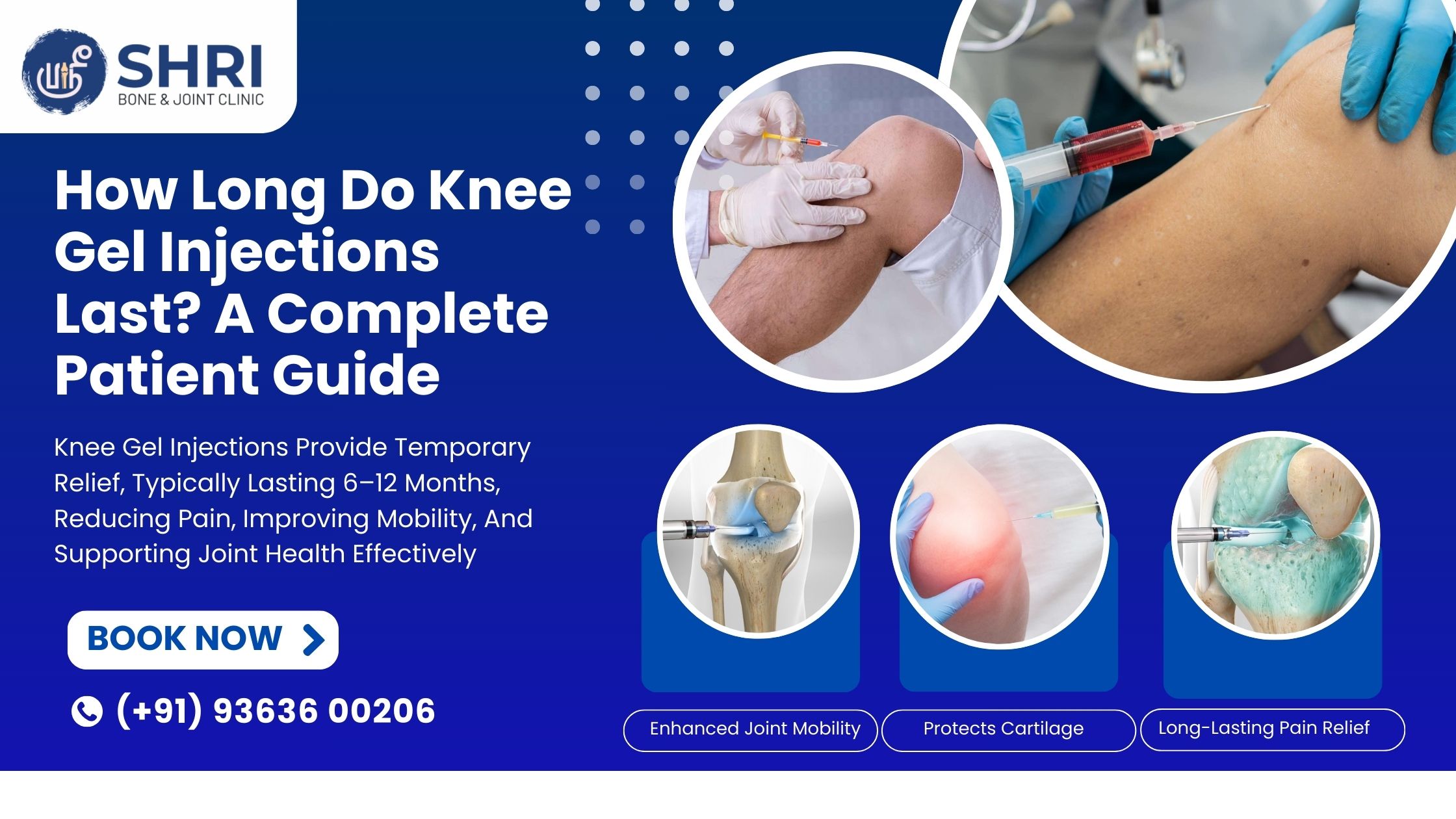Knee pain is one of the most common issues affecting people worldwide, especially those living with osteoarthritis. When medications and lifestyle changes no longer provide enough relief, many patients turn to knee gel injections—also called hyaluronic acid or viscosupplementation injections.
These injections work by replenishing lubrication inside the knee joint, helping reduce friction, improve cushioning, and ease movement. But one of the biggest questions patients ask before treatment is: how long do knee gel injections actually last?
How Do Knee Gel Injections Work?
The knee joint naturally contains hyaluronic acid in its fluid, which acts as a lubricant and shock absorber. In osteoarthritis, the levels of hyaluronic acid decrease, making the joint stiff and painful.
Gel injections supplement this fluid, restoring lubrication and helping the knee function more smoothly. Depending on the product, the injection may be given as a single dose or in a series spread over several weeks.
How Long Do Knee Gel Injections Last?
The duration of relief varies from person to person, but most studies and clinical practice show:
- Pain relief typically starts within a few days to a few weeks.
- The effects usually last 4 to 6 months for most patients.
- Some individuals may experience relief for up to 12 months.
- Repeat injections are often needed once the benefits wear off.
The longevity of results depends on several factors, including the severity of arthritis, activity level, body weight, and overall health.
Factors That Affect How Long Gel Injections Last
1. Severity of Arthritis
- Mild to moderate arthritis responds better than severe cases.
- Patients with advanced joint damage may see shorter-lasting benefits.
2. Lifestyle and Activity Level
- High-impact activities like running or sports may shorten the duration of relief.
- Gentle exercises and physiotherapy help maintain longer-lasting results.
3. Type of Injection Used
- Some brands are designed for single-dose treatments, while others use a series of three to five injections.
- Longer-acting formulations may last closer to a year.
4. Body Weight
- Excess weight increases joint stress, potentially reducing how long injections remain effective.
5. Overall Health
- Conditions such as diabetes or chronic inflammation may affect healing and outcomes.
How Often Can You Repeat Knee Gel Injections?
Most doctors recommend repeating gel injections every 6–12 months, depending on symptom return and patient response. Some patients only require yearly injections, while others benefit from shorter intervals.
It’s important to follow medical guidance and not overuse injections, as this may reduce effectiveness over time.
Comparing Gel Injections with Other Treatments
Patients often ask how long gel injections last compared to other therapies:
- Corticosteroid Injections – Provide quick pain relief, but effects last only 4–8 weeks.
- Platelet-Rich Plasma (PRP) Injections – May last longer than gel injections, especially in younger patients, but results are still under study.
- Surgery (Knee Replacement) – Provides long-term relief but is invasive and not suitable for everyone.
This makes gel injections a middle-ground treatment—longer-lasting than steroids, less invasive than surgery.
Who Benefits the Most from Gel Injections?
- Adults with mild to moderate knee osteoarthritis
- Patients who want to delay or avoid surgery
- People who cannot tolerate long-term pain medications
- Individuals seeking non-surgical alternatives for mobility and pain control
FAQs About How Long Knee Gel Injections Last
Do knee gel injections work immediately?
Not always. Relief may begin in a few days but often takes 2–4 weeks to become noticeable.
Can knee gel injections last more than a year?
Some patients report relief beyond 12 months, but most require repeat treatment within 6–12 months.
What happens when knee gel injections wear off?
Pain and stiffness may gradually return. At that point, another course of treatment or alternative therapy may be recommended.
Are there side effects with repeated injections?
Mild side effects such as temporary swelling or soreness can occur. Severe complications are rare.
Do gel injections replace surgery?
They can delay or reduce the need for knee replacement but are not a permanent cure.
Conclusion
Knee gel injections are an effective option for many people with osteoarthritis who want longer-lasting pain relief without surgery. On average, the results last 4 to 6 months, with some patients experiencing relief for up to a year.
To maximize results, it’s essential to maintain a healthy weight, follow physiotherapy, and consult experienced Orthopedic Specialists for ongoing care. For many patients, a Gel Injection for Knee Pain provides the balance of safety, convenience, and durability they need to stay active.

